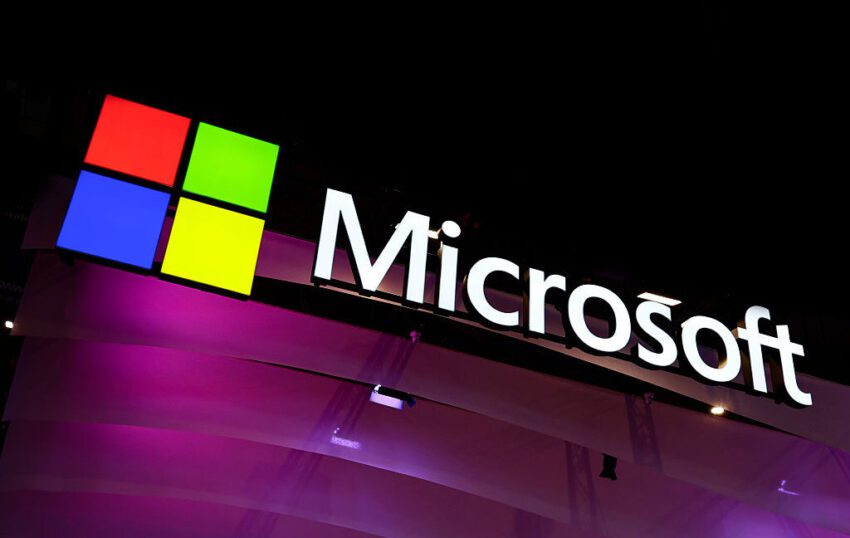
senator blasts microsoft for making default windows A prominent US Senator has called on the Federal Trade Commission to investigate Microsoft for “gross cybersecurity negligence,” citing the company’s continued use of an obsolete and vulnerable form of encryption that Windows uses by default.
senator blasts microsoft for making default windows
Background on the Issue
In recent years, cybersecurity has emerged as a critical concern for both individuals and organizations. With the increasing frequency and sophistication of cyberattacks, the need for robust security measures has never been more pressing. Among the various vulnerabilities that can be exploited by malicious actors, outdated encryption methods stand out as particularly concerning. One such method is the RC4 encryption cipher, which has been criticized for its weaknesses and is no longer considered secure.
RC4 was widely used in various applications, including web traffic encryption and secure communications, but has since been phased out by many organizations due to its vulnerabilities. Despite this, Microsoft has continued to use RC4 as the default encryption method in its Windows operating system, raising alarms among cybersecurity experts and lawmakers alike.
Senator Wyden’s Concerns
Senator Ron Wyden (D–Ore.) has been vocal about his concerns regarding Microsoft’s security practices. In a recent letter to FTC Chairman Andrew Ferguson, Wyden urged the commission to investigate Microsoft for what he termed “gross cybersecurity negligence.” This call to action was prompted by an investigation conducted by Wyden’s office into a significant ransomware breach that occurred in 2024, affecting the health care giant Ascension.
The Ascension Breach
The 2024 ransomware attack on Ascension resulted in the theft of medical records belonging to approximately 5.6 million patients. This breach not only compromised sensitive personal information but also raised questions about the security measures in place to protect such data. Wyden’s investigation revealed that the default use of the RC4 encryption cipher was a direct contributor to the breach, highlighting the potential risks associated with outdated encryption methods.
In his letter, Wyden emphasized that the continued reliance on RC4 poses a significant risk to the security of users and organizations that depend on Microsoft’s software. He argued that the company’s failure to update its encryption protocols constitutes negligence, particularly given the known vulnerabilities associated with RC4.
The Implications of Using RC4
The implications of using an obsolete encryption method like RC4 are far-reaching. Cybercriminals can exploit vulnerabilities in RC4 to gain unauthorized access to sensitive information, leading to data breaches, identity theft, and financial losses. In the case of the Ascension breach, the compromised medical records could have serious consequences for the affected patients, including potential identity theft and misuse of their personal information.
Moreover, the use of outdated encryption methods can undermine trust in organizations that handle sensitive data. Patients and consumers expect that their information will be protected by the latest security measures, and any failure to meet these expectations can lead to reputational damage and loss of business.
Previous Criticisms of Microsoft
This is not the first time Senator Wyden has criticized Microsoft for its security practices. In fact, this marks the second consecutive year that he has employed the term “negligence” to describe the company’s approach to cybersecurity. Wyden’s ongoing scrutiny of Microsoft reflects a broader concern among lawmakers and cybersecurity experts regarding the adequacy of security measures employed by major technology companies.
In the past, Wyden has raised alarms about various cybersecurity issues, including the handling of user data and the effectiveness of security protocols. His advocacy for stronger cybersecurity measures has positioned him as a key figure in the ongoing debate over how technology companies should prioritize user security and privacy.
Stakeholder Reactions
The call for an investigation into Microsoft has garnered attention from various stakeholders, including cybersecurity experts, consumer advocacy groups, and fellow lawmakers. Many experts agree with Wyden’s assessment that the continued use of RC4 is a significant security risk. They argue that technology companies have a responsibility to adopt the latest security standards and protect their users from potential threats.
Consumer advocacy groups have also expressed support for Wyden’s call for an investigation. They argue that users should not have to bear the consequences of outdated security practices and that companies like Microsoft must be held accountable for their negligence. These groups emphasize the importance of transparency and accountability in the tech industry, particularly when it comes to safeguarding user data.
Microsoft’s Response
As of now, Microsoft has not publicly responded to Senator Wyden’s request for an investigation. However, the company has faced criticism in the past for its handling of security vulnerabilities. Microsoft has made efforts to improve its security practices in recent years, including regular updates and patches to address known vulnerabilities. Nevertheless, the continued use of RC4 raises questions about the effectiveness of these measures.
Industry experts suggest that Microsoft should take immediate action to phase out the use of RC4 and adopt more secure encryption methods. This could involve transitioning to modern encryption standards such as AES (Advanced Encryption Standard), which is widely regarded as a more secure alternative. By making these changes, Microsoft could significantly enhance the security of its products and rebuild trust with its users.
The Broader Context of Cybersecurity
The situation surrounding Microsoft and the RC4 encryption issue is part of a larger narrative in the realm of cybersecurity. As cyber threats continue to evolve, organizations must remain vigilant and proactive in their security measures. The increasing prevalence of ransomware attacks, data breaches, and other cyber incidents underscores the need for robust security protocols and regular updates to encryption methods.
Government agencies, including the FTC, play a crucial role in overseeing the tech industry and ensuring that companies prioritize cybersecurity. Investigations into companies like Microsoft can serve as a wake-up call for the industry, prompting other organizations to reevaluate their security practices and adopt more stringent measures to protect user data.
Conclusion
Senator Ron Wyden’s call for an investigation into Microsoft’s cybersecurity practices highlights the critical importance of robust security measures in today’s digital landscape. The vulnerabilities associated with the continued use of the RC4 encryption cipher pose significant risks to users and organizations alike. As cyber threats become increasingly sophisticated, technology companies must prioritize the adoption of modern encryption standards and take proactive steps to safeguard user data.
The outcome of this investigation could have far-reaching implications for Microsoft and the broader tech industry. It serves as a reminder that negligence in cybersecurity can have serious consequences, and companies must be held accountable for their practices. As the debate over cybersecurity continues, the focus will remain on ensuring that organizations prioritize the protection of sensitive information and maintain the trust of their users.
Source: Original report
Was this helpful?
Last Modified: September 11, 2025 at 1:36 am
4 views















